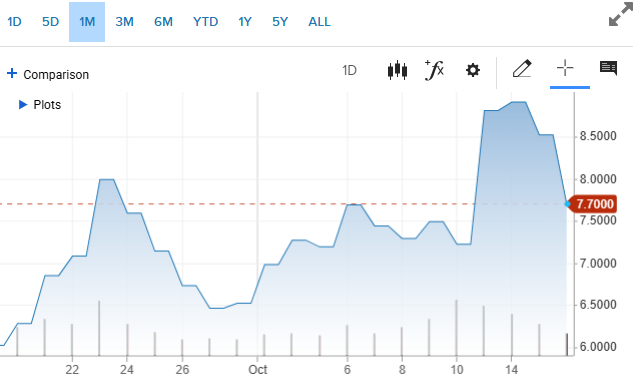BigBear.ai Strengthens Defense Technology Position Through Strategic AI Partnerships

Summary
Full Article
BigBear.ai Holdings is strengthening its position in defense technology through strategic artificial intelligence partnerships that aim to bring advanced computing capabilities to military operations. The Columbia, Md.-based company is leveraging its AI expertise to address critical defense needs through collaborations with technology partners Tsecond and SMX, focusing on edge computing and maritime security applications.
The partnership with Tsecond combines BigBear's ConductorOS AI orchestration platform with Tsecond's portable BRYCK hardware system, creating a powerful edge computing solution for battlefield operations. This compact, high-capacity unit enables military operators to process data directly in the field, allowing real-time analysis of drone footage and sensor inputs without requiring data transmission to central servers. This capability is particularly valuable in contested environments where communications infrastructure may be compromised or unavailable.
Simultaneously, BigBear is expanding into maritime operations through its agreement with SMX, demonstrated at the Navy's UNITAS 2025 exercise. The company plans to integrate its ConductorOS and Arcas analytics systems into unmanned and hybrid naval platforms. This technology can identify patterns of vessel movement and detect suspicious activity across extensive ocean zones, supporting both defense missions and homeland security operations. Chief Executive Kevin McAleenan, the former acting Secretary of Homeland Security, has emphasized that BigBear's experience in AI-driven analytics positions the company to serve a broader range of national security applications.
Despite these strategic advancements, BigBear's recent financial performance has shown mixed results. Second quarter 2025 revenue declined 18% to $32.5 million from $39.8 million a year earlier, primarily due to delays in U.S. Army programs. Gross margins narrowed to 25% from 27.8%, and adjusted EBITDA losses widened to $8.5 million from $3.7 million. The company reported a substantial net loss of $228.6 million, driven by large noncash charges related to convertible debt revaluation and goodwill impairment. However, BigBear exited the quarter with a record $390.8 million in cash, bolstered by a $293 million equity raise that turned its balance sheet positive for the first time in years.
Investors have responded positively to BigBear's strategic repositioning, with shares more than doubling in 2025 and recently trading around $9, lifting the company's market capitalization to approximately $3.3 billion. The company's valuation metrics remain elevated, with a forward enterprise value-to-sales ratio exceeding 22 compared to a sector median below 4. This valuation reflects strong market optimism about BigBear's AI integration in defense applications, though analysts note significant execution risk remains.
The upcoming earnings report in November will provide critical insight into whether BigBear's new partnerships are translating into revenue momentum. Analysts will monitor progress in delayed Army contracts, margin improvement initiatives, and evidence that the Tsecond and SMX collaborations are contributing to new business bookings. With global geopolitical tensions maintaining pressure on defense spending and governments increasingly seeking AI tools to modernize military capabilities, BigBear's success in converting technological promise into sustainable profitability will determine its long-term position in the competitive defense technology landscape.

This story is based on an article that was registered on the blockchain. The original source content used for this article is located at citybiz
Article Control ID: 256251